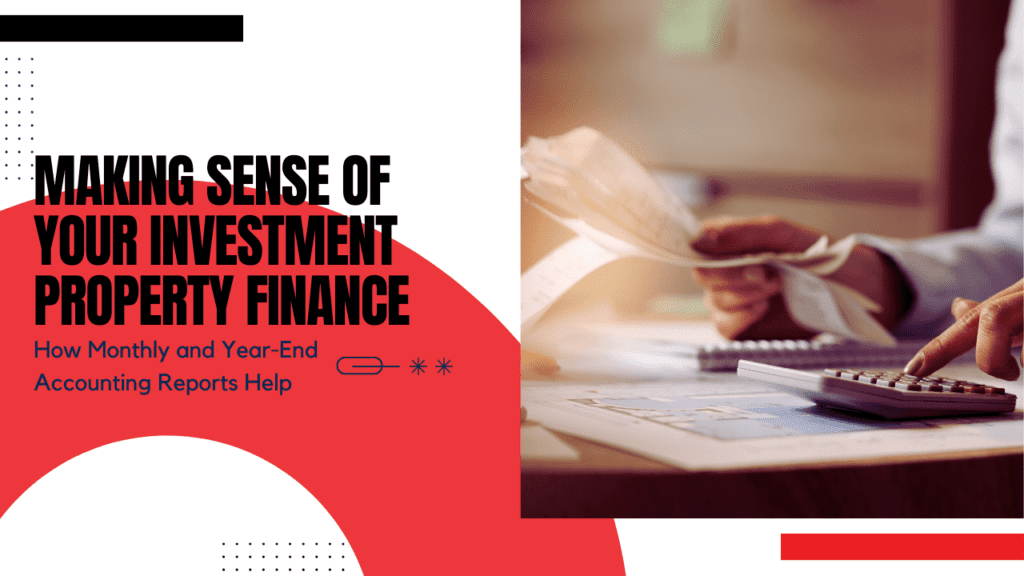
Whether you’re a landlord managing just one home on your own or a real estate investor building a growing portfolio of rental properties, managing your finances properly is essential to ensuring compliance with the IRS and understanding what exactly you’re earning and spending on your investment.
Financial management and accounting reports are necessary, but they’re not always easy.
If you didn’t get into the real estate investing business in order to be a number cruncher, we have some bad news: There are a lot of numbers that need crunching. You’re estimating repair costs, paying maintenance invoices, evaluating rental values, and collecting rent. You’re deciding on lease renewal increases, considering which upgrades and improvements you think are worth your resources, and spending money on things like marketing, tenant screening, preventative services, and wear and tear.
Keeping track of your income, expenses, and profits can be a complex chore, especially if you own multiple investment properties.
This is why you need accurate, detailed, and transparent monthly and year-end financial reports.
As property managers in Tampa and the surrounding areas, we help rental property investors make sense of their finances by providing accounting statements online. They’re accessible and easy to read, and our clients use them to understand where they are financially and how they might be able to do better.
Here’s how you can make sense of your own investment property finances, and why those reports are so critical.
Statements Provide a Clear Picture of Your Income and Expenses
One of the main benefits of keeping careful accounting records through monthly and year-end financial reports is that they provide a clear picture of your income and expenses. You’ll know where you stand, property by property. You’ll know how strong your portfolio is as a whole.
These reports allow you to track your rental income and expenses, including:
- Repairs and maintenance
- Vacancy costs
- Insurance, mortgage, and tax payments
- Management fees
With this information, you can understand how much money you are making each month and how much you are spending on your properties.
Tax Time Requires Good Reporting
Staying on top of your taxes is critical, and monthly and year-end financial reports can help you do just that. There’s not a lot of room for error when we’re talking about income taxes and the IRS. Avoid audits and mistakes by keeping everything well-documented. This will help you when you’re filing your taxes. The reports will provide you with a comprehensive breakdown of your income and expenses, making it easier to file your tax returns accurately.
Think about your deductions and exemptions as well. You can also use these reports to claim deductions on your taxes. As a rental property owner, you’re permitted to deduct the cost of repairs and maintenance, mortgage interest, depreciation, some travel and home office expenses, and professional fees that you pay your property manager, attorney, insurance agent, and others.
Identifying Trends and Patterns with Your Investment Properties
Another benefit of monthly and year-end financial reports is that they allow you to identify trends and patterns in your finances.
By analyzing these reports, you can see which properties are making the most money and which ones are costing you the most. This can help you make some decisions about how you want to structure things going forward. Looking at your financial reports will allow you to identify any seasonal fluctuations in your revenue, allowing you to plan accordingly when it’s time to schedule lease-end dates or increase rental values.
This information can help you make informed investment decisions, such as deciding which properties to invest more money into and which ones to sell. Understanding your numbers might lead you to a 1031 Exchange or the diversification of your portfolio.
Monthly and year-end financial reports help you plan for the future.
By analyzing your income and expenses, you can predict how much money you will make in the coming months and years. This information can help you make informed decisions about expanding your portfolio, taking on new properties, or investing in other ventures. These reports can also help you identify areas where you need to focus your attention, such as improving the occupancy rate of your properties or increasing your rental rates.
Accountability and Transparency
 Finally, monthly and year-end financial reports encourage accountability and transparency in all of your accounting and business practices. As a real estate investor, it’s crucial to be transparent about your finances, both with yourself and with others. These reports help you stay organized and accountable for your financial decisions, and they also make it easier to communicate with your tenants or partners about your financial situation.
Finally, monthly and year-end financial reports encourage accountability and transparency in all of your accounting and business practices. As a real estate investor, it’s crucial to be transparent about your finances, both with yourself and with others. These reports help you stay organized and accountable for your financial decisions, and they also make it easier to communicate with your tenants or partners about your financial situation.
We’re always talking to investors and landlords about the idea that you make money as soon as you buy your property. There’s more to your financial success than the rent you collect, and a well-structured financial statement or accounting report can show you that in black and white.
Monthly and year-end financial reports are essential for real estate investors. They provide a clear breakdown of your income and expenses, help you stay on top of your taxes, allow you to identify trends and patterns, help you plan for the future, and encourage accountability and transparency. By using these reports to manage your finances, you can make informed investment decisions, stay organized, and ensure that your investment properties remain profitable.
We invest in some pretty great property management technology that makes these statements and reports easy to produce and share. If you’d like some help with your own accounting, please don’t hesitate to contact us at Hoffman Realty.
